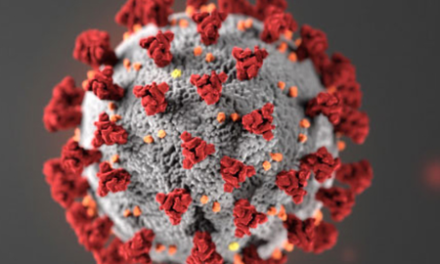JESSICA STUBBS | Staff Writer
50 years after the death of her father, Ilyasah Shabazz speculates about where Malcolm X might stand on issues affecting black Americans if he were living today.
What Would Malcolm X Think? is the name of her opinion piece published in the New York Times on Saturday.
Shabazz claims X would be critical of today’s organizing efforts within the black U.S. community.
“Of course, my father would be heartened by the youth-led movement taking place across the nation, and abroad, in response to institutional brutality,” Shabazz writes. ‘And he would appreciate the protesters’ fervor and skillful use of social media to rapidly organize, galvanize and educate. In a sense, his ability to boil down hard truths into strong statements and catchy phrases presaged our era of hashtag activism.”
Shabazz said she believes her father would critique the activists’ rhetoric itself.
“I imagine he would applaud the “Hands Up” gesture for its sheer dramatic effect, but also critique it as rank capitulation that ironically accommodates the very goal of police brutality — to intimidate and immobilize black citizens, forcing them into a defenseless posture if they hope to survive.
She goes on to say she believes her father would share her view of the iconic “hands up don’t shoot” chant, a staple in 2014’s anti-police brutality protests and the “black lives matter” movement.
“He’d agree that “Black Lives Matter,” indeed — but also note that the uniformed police officers who disagree are not likely to be persuaded by a hashtag,” Shabazz said.
Born Malcolm Little on May 19, 1925 in Omaha, Nebraska; El-Hajj Malik El-Shabazz, better known as Malcolm X was assassinated 50 years ago on February 21, 1965 at age 39. At a speaking event in Manhattan’s Audubon Ballroom on February 21, 1965, three gunmen charged Malcolm onstage. They shot him 15 times at close range. He was pronounced dead on arrival at New York’s Columbia Presbyterian Hospital. His assassins, Talmadge Hayer, Norman 3X Butler, and Thomas 15X Johnson, were convicted of first-degree murder in March of 1966. The three men were all members of the Nation of Islam. Family gathered at the Audubon Ballroom, now the Malcolm X and Betty Shabazz Memorial and Education Center, to honor the legacy of the late minister.
The Name
In 1953, Malcolm changed his name from Malcolm Little to Malcolm X because he considered “Little” a slave name and chose the “X” to signify his lost tribal name. In Malcolm received criticism for a comment he made regarding the assassination of President John F. Kennedy. “[Kennedy] never foresaw that the chickens would come home to roost so soon,” said Malcolm. After the statement, Elijah Muhammad “silenced” (suspended) Malcolm for 90 days. In March 1964, Malcolm terminated his relationship with the Nation of Islam, a black supremacist organization. In the same year, Malcolm made a pilgrimage to Mecca, changing his name to El-Hajj Malik El-Shabazz. There is no record of the meaning of the name, however there are many theories regarding its origin.
The Life
Malcolm was one of eight children. His father, Earl Little was an outspoken baptist minister who followed and supported the Black Nationalist leader Marcus Garvey. His mother, Louise Little was a homemaker busy with the children. Continued threats from the Black Legion, a splinter of the Ku-Klux Klan, forced the family to move to Lansing, Michigan. In 1929, their Lansing home was burned down. Two years later, Earl’s body was found lying across the town’s trolley tracks. Police ruled both incidents as accidents, but the Littles were certain that members of the Black Legion were responsible. Louise suffered emotional breakdown several years after her husband’s death and was admitted to a mental institution, while her children were split up among various foster homes and orphanages.
After the eighth grade, Malcolm dropped out of school, headed for a life of crime. When twenty-one, he was sentenced to prison for burglary and there he encountered the teachings of Elijah Muhammad, leader of the Nation of Islam. Muhammad’s thesis that the white man is the devil with whom blacks cannot live had a strong impact on Malcolm. Malcolm was appointed as a minister and national spokesman for the Nation of Islam. Elijah Muhammad also entrusted him with establishing new mosques in cities such as Detroit, Michigan, and Harlem. Malcolm was largely credited with increasing membership in the Nation from 500 in 1952 to 30,000 in 1963.
After his return from Mecca in 1964, Malcolm said he had met “blonde-haired, blued-eyed men I could call my brothers.” He returned to the United States with a new outlook on integration and a new hope for the future. This time when Malcolm spoke, instead of just preaching to African-Americans, he had a message for all races. In March 1964, Malcolm terminated his relationship with the Nation. After Malcolm resigned from the Nation and renounced Elijah Muhammad, relations between the two had become increasingly strained. FBI informants working undercover in the Nation warned officials that Malcolm had been marked for assassination–one undercover officer had even been ordered to help plant a bomb in Malcolm’s car.
After repeated attempts on his life, Malcolm rarely traveled anywhere without bodyguards. On February 14, 1965 the home where Malcolm, Betty, and their four daughters lived in East Elmhurst, New York was firebombed. The family escaped unharmed. One week later, Malcolm was assassinated in Manhattan’s Audubon Ballroom on February 21, 1965.
The Legacy
50 years after his assassination, Malcolm is remembered by one of six daughters, Ilyasah Shabazz at the Audubon Ballroom, now the Malcolm X and Betty Shabazz Memorial and Education Center. Malcolm was honored in cities all over the United States through events sponsored from various groups to honor and remember the legacy of Malcolm X.



